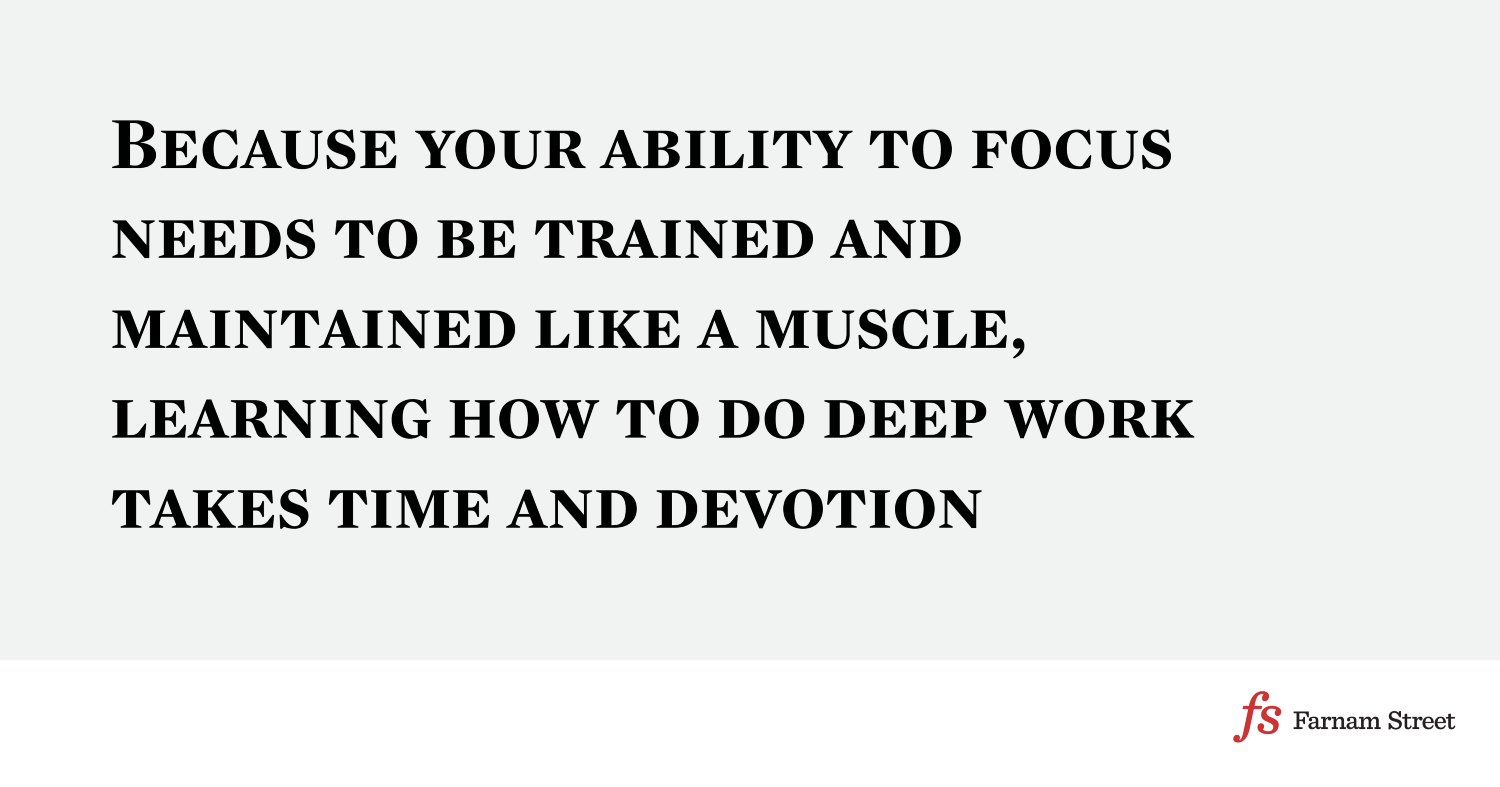
Keeping track of the amount of time you spend focused on activity is a great way to improve your productivity but to go to the next level you need to do more.
In the words of Author Cal Newport, deep work is “the specific activity where you’re focusing without distraction on a cognitively demanding task.” This focus is how we learn new things, do hard tasks, and generally deliver high quality work. “Focus mode” is the opposite of multitasking and its a modern superpower.

I was fortunate to interview Cal for a course I put together called The Art of Focus. Here is an excerpt I thought you might like.
Shane Parrish: What were the mistakes that you made when you first started to apply those? You get this insight and then you set about orchestrating your life and your environment and structuring it in such a way to maximize the opportunities for this. What mistakes did you make in the start?
Cal’s Response:
A big mistake, a mistake I made … is I was hoping that if I just kept track of deep work … that that would be enough to drive me to the levels of deep work that I wanted to get because I would want to avoid the embarrassment of ending my week and looking at my tally mark of deep work hours and see that it was really small.
… At the time when I was writing the book, I deployed this tactic. There’s some other friends and writers who have written/published about how they now use this tactic, but what I discovered was that that deep work tally is good from getting you from almost no deep work to some deep work because you don’t want to have zero on there, but where I really wanted to get which is much more … Maybe 30 to 50% of my working hours each week dedicated to deep work.
I was never going to get there by just having this tally in the back of my mind to try to keep me honest. That wasn’t strong enough, that wasn’t proactive enough to grab and protect the long swaths of time I really needed to up how much work I’m getting done.
I think that approach of just keep track of what I do that will pressure me into doing more of this deep work ended up being too lightweight for the amount of deep work that I really wanted to get done for what I was doing.
In the full interview, Cal goes on to share what he does now that works better for him. (I’ll give you a hint, it has to do with changing defaults and it’s enabled him to become way more productive.) We also discuss a long list of other tips and tricks on doing deep work, including things I haven’t heard him say elsewhere.
But the main point is this: Because your ability to focus needs to be trained and maintained like a muscle, learning how to do deep work takes time and devotion. It doesn’t happen overnight. But it’s worth it. We built a course called the Art of Focus to help you down the path, but however you do it, make sure it gets done.
Learn to focus your energy. Don’t waste your time in a state of constant busywork. That’s a path to becoming average, and in the words of Tyler Cowen, “average is over.”
Work smarter not harder, sign up for my free weekly Brain Food newsletter.
You can follow Shane on Twitter and Facebook.
Originally published at medium.com


